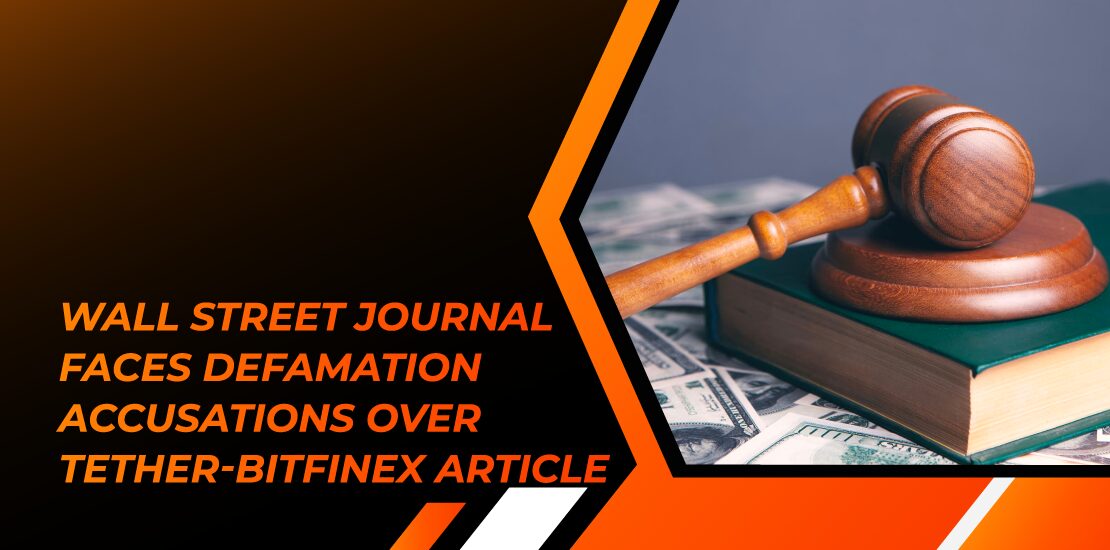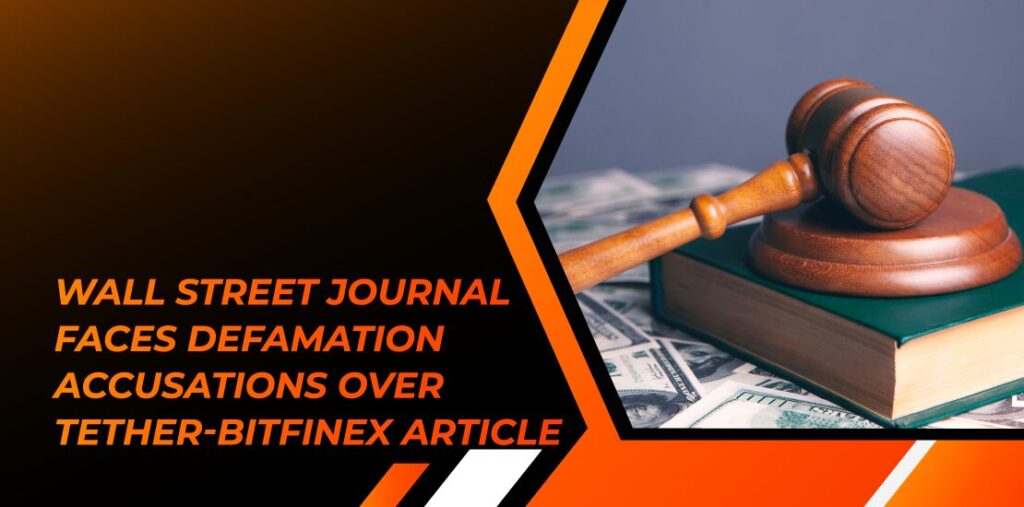- March 3, 2024
- Posted by: [email protected]
- Category:


The defamation lawsuit against the Wall Street Journal adds a layer of complexity to the ongoing debate over the responsibilities and ethical considerations of journalism in the age of digital media. Christopher Harborne’s legal action underscores the potential consequences of media organizations making claims that, if proven false, could irreparably harm the reputation and livelihoods of individuals and businesses.
The crux of Harborne’s legal complaint lies in the accusations leveled against him and AML Global Ltd. The article in question, “Crypto Companies Behind Tether Used Falsified Documents and Shell Companies to Get Bank Accounts,” not only implicated Tether and Bitfinex but also painted Harborne and his company in a dubious light, suggesting their involvement in financial wrongdoing. Harborne asserts that the allegations of fraud, money laundering, and terrorism financing are baseless and has sought legal recourse to rectify what he perceives as a severe tarnishing of his professional reputation.
The timing of the editor’s note, added a week before the lawsuit was filed, adds another layer of intrigue to the situation. The decision to remove the sections mentioning Harborne and AML Global Ltd. from the article might be seen as an acknowledgment by The Wall Street Journal of potential inaccuracies or misrepresentations in the original piece. This, in turn, could influence the court’s perception of the case, raising questions about the veracity of the claims made against Harborne and the editorial rigor employed by the esteemed publication.
The response from The Wall Street Journal’s spokesperson indicates a commitment to defending the publication’s editorial decisions and content. Claiming inaccuracies and distortions in the lawsuit, the spokesperson underscores the publication’s dedication to journalistic integrity while preparing for a robust legal defense. This sets the stage for a legal battle that not only delves into the specifics of the Tether-Bitfinex article but also prompts broader discussions about the responsibility of media organizations in disseminating information with far-reaching consequences.
The backdrop of a previous Wall Street Journal article alleging that Hamas militants raised millions in cryptocurrency introduces another dimension to this narrative. While this earlier piece fueled discussions among policymakers, it faced subsequent scrutiny from blockchain analytics company Elliptic. Their contradiction of claims regarding Hamas’s crypto fundraising further emphasizes the importance of thorough fact-checking and due diligence in journalism, especially when reporting on sensitive issues with potential geopolitical implications.
As this legal saga unfolds, it has the potential to shape not only the reputation of The Wall Street Journal but also the broader discourse on media accountability, journalistic standards, and the delicate balance between informing the public and avoiding unwarranted harm to individuals and businesses.



